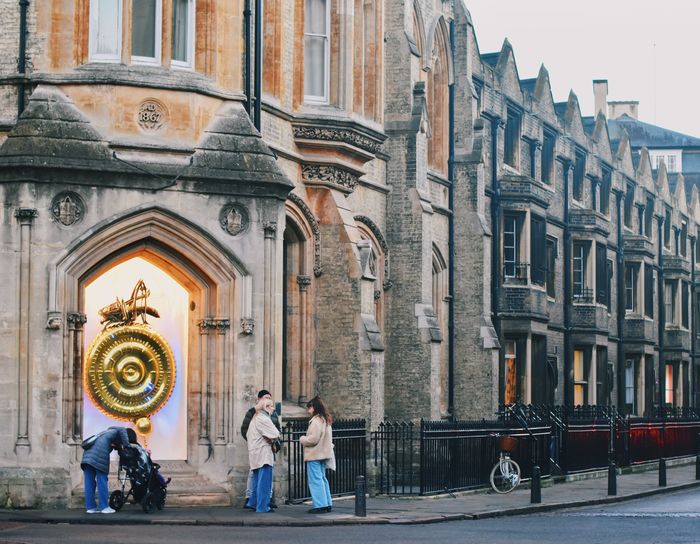A loss of the arts is a loss for everyone
In devaluing the arts, modern culture fails to recognize their importance to human flourishing, argues Famke Veenstra-Ashmore

In recent years, there has been a systemic reduction in attention, funding, and worth allocated to the Arts sector, stretching from a primary school level to the world of work. Government endorsed, the absence of value placed in sectors such as dance, fine arts, and creative industries has increased exponentially alongside the emphasis on STEM pathways.
Exacerbated by the pandemic, arts have struggled to cope with claims against their economic worth and the misleading notion that they do nothing to advance society. Yet as a population, we are relying more and more on the escapism and freedom that arts provides. Our attitude towards the sector is self-destructive and incongruous with what we widely accept as human values.
“We receive our news in the way that we do because of copywriters, illustrators, and editors, all of whom fulfill a creative role”
The freedom of expression is closely coded in our arts industries; what other sector provides us with the chance to manifest our ideas creatively, argue for the things we care about in resonant ways, and bring communities together around a uniting theme? Arts are essential not only to the individual, but to society as a whole. Even the commercial value behind the arts is scrutinised, when behind every logo is an artist and behind every digital recording is a production crew. We receive our news in the way that we do because of copywriters, illustrators, and editors, all of whom fulfill a creative role.
Through consumption of media, the very knowledge that we receive from the world around us is filtered through many different creative lenses. Without even the very basic structures provided by the arts, society is unable to function. Given what we risk losing in neglect of creative industries, there is no doubt that they must be defended.
Knowing this, why is participation in the arts constantly criticised and often seen as frivolous? Even art produced or pursued from a purely recreational standpoint is essential; how would we spend our free time if not for television, film, reading? Even hobbies that we may not necessarily frame as artistic require some form of reliance on creativity: sports, cooking, social media.
“The more we undervalue and underfund the people and industries which facilitate the protection of these common hobbies, the less accessible they become”
Indeed, if art had no social or institutional utility, its defense is still inherently valid. Art for art’s sake is a timeless debate, but in our current culture and society, its purpose as escapism or even just a hobby offers inherent value, even without the other functions it provides. The more we undervalue and underfund the people and industries which facilitate the protection of these common hobbies, the less accessible they become. As far as the creative industry is concerned, money is the ultimate tool – we have seen how throughout the pandemic, a loss of sales or funding has depleted music venues, made theatre near impossible to produce, and forced youth engagement programmes to close or reduce their scope.
Now facing a third bout of disruption by Omicron, the outlook on the future of the arts’ presence is fairly bleak. In order to prevent further loss in the arts, the way in which we discuss the desirability and importance of the various industries needs to change. An overall undervaluing of the arts in public consciousness has led to the lack of participation from students in these subjects, something that should scare us. Political discourse about the purpose of art, whilst important, is leading to the curation of a negative image, not serving as the best encouragement of young and up-and-coming creatives.
Like an endangered language, what ensures the survival of a cultural artefact is the people who participate in it. If participation fails, the industry will be unable to sustain itself. Whilst of course people will always naturally be drawn to the arts, if creative pursuits continue to be actively discouraged, devalued, and undermined, their accessibility and impact may continue to wane overtime. This will amount not only to a loss for arts itself, but to a loss for everyone.
 Comment / Cambridge’s tourism risks commodifying students18 April 2025
Comment / Cambridge’s tourism risks commodifying students18 April 2025 News / Cambridge student numbers fall amid nationwide decline14 April 2025
News / Cambridge student numbers fall amid nationwide decline14 April 2025 News / Greenwich House occupiers miss deadline to respond to University legal action15 April 2025
News / Greenwich House occupiers miss deadline to respond to University legal action15 April 2025 Comment / The Cambridge workload prioritises quantity over quality 16 April 2025
Comment / The Cambridge workload prioritises quantity over quality 16 April 2025 News / Varsity ChatGPT survey17 April 2025
News / Varsity ChatGPT survey17 April 2025






